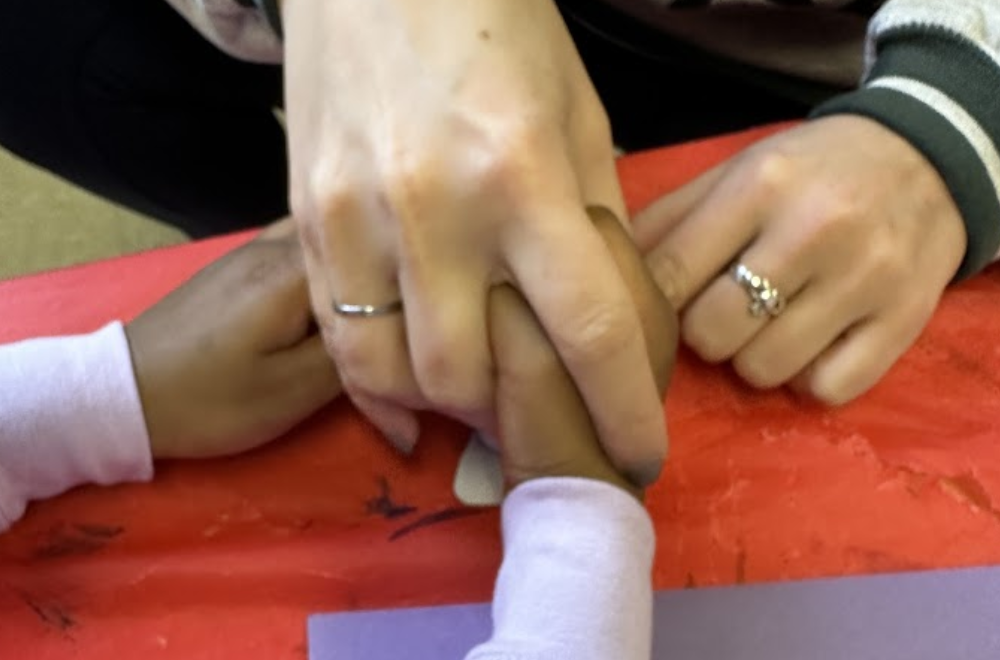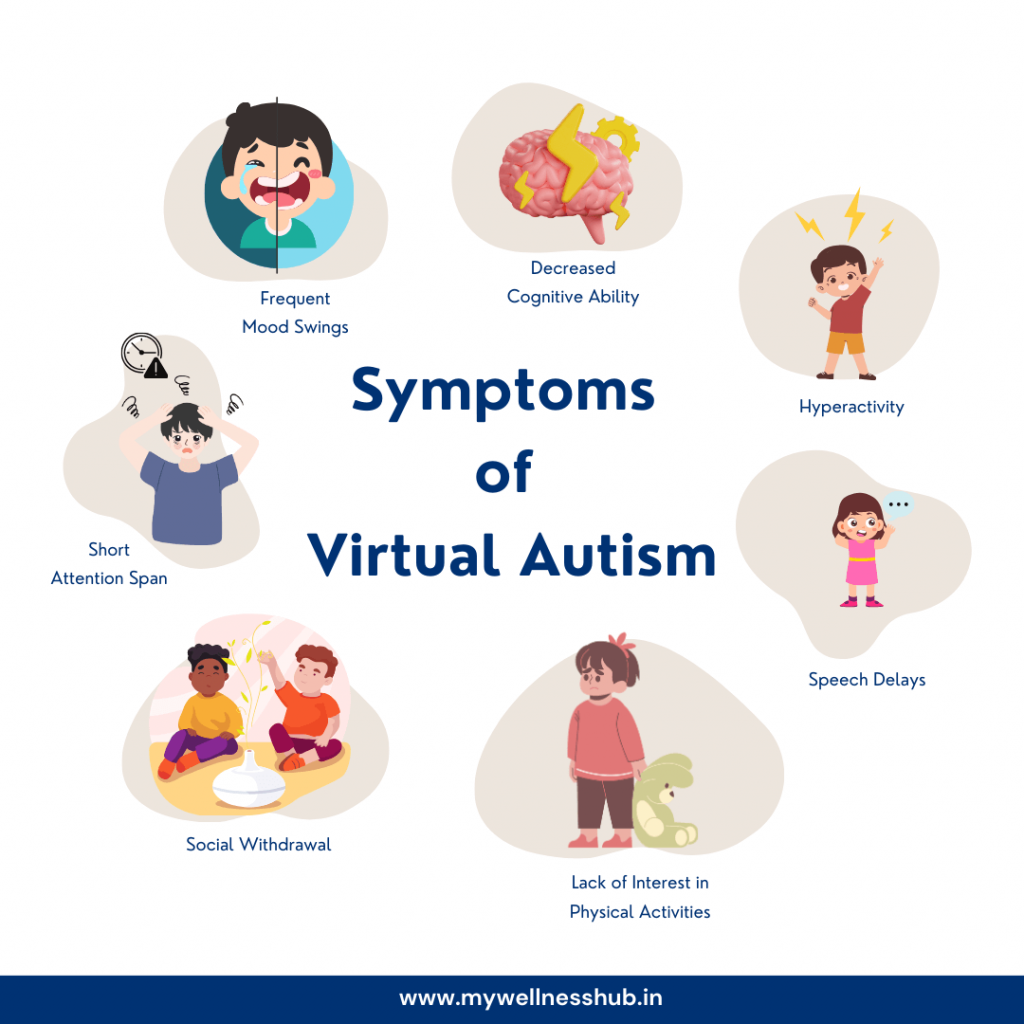Does Autism Behavioral Therapy deliver results? Find out how
Does Autism Behavioral Therapy deliver results? Find out how
Blog Article
Recognizing the Influence of Behavioral Autism on Every Day Life and Social Communications
You might not understand just how deeply behavior autism affects daily life and social communications. People on the spectrum typically navigate a globe loaded with interaction hurdles and sensory overload. These challenges can lead to disappointment and seclusion, affecting their relationships and general well-being.
Specifying Behavior Autism and Its Characteristics
Behavior autism, often described as autism range condition (ASD), encompasses an array of conditions identified by difficulties in social communication, communication, and recurring behaviors. You may see that individuals with ASD frequently battle to translate social signs, which can result in misconceptions in conversations. They might discover it tough to establish eye contact or take part in small talk, making social circumstances really feel overwhelming.
Interaction difficulties can manifest in different methods, from postponed speech growth to a preference for using fewer words. By recognizing these qualities, you can cultivate a setting that advertises approval and urges reliable interaction, aiding individuals with autism thrive in their daily interactions.
The Range of Autism: Recognizing Irregularity in Habits
Autism range condition (ASD) isn't a one-size-fits-all diagnosis; it varies extensively amongst individuals. You might run into individuals who are highly verbal and engage conveniently in discussions, while others might prefer singular activities or connect non-verbally.
Furthermore, the means individuals with ASD react to sensory input can vary substantially; some may be overwhelmed by intense lights or loud sounds, whereas others thrive in boosting atmospheres. The range likewise consists of differences in social interactions; some individuals might have a hard time to interpret social signs, while others navigate social setups with relative convenience. Understanding this irregularity is necessary, as it aids you appreciate each person's special experience and tailor assistance to their specific requirements, fostering an extra inclusive setting for everyone.
Interaction Challenges Dealt With by People With Autism
When you communicate with people on the autism spectrum, you may see their unique interaction challenges. They commonly face problems with both spoken and nonverbal cues, which can affect their social communications. Recognizing these barriers is crucial for promoting far better links and support.

Verbal Communication Troubles
Several individuals on the autism spectrum experience verbal communication troubles that can considerably impact their everyday communications. You could locate it challenging to reveal your ideas, sensations, or needs clearly. This can result in irritation for both you and those around you, as misconceptions occur. You may have problem with starting discussions, keeping a subject, or recognizing subtleties in speech. Usually, you might choose utilizing basic language or repetitive expressions, which can restrict your capability to engage in much deeper conversations. Your quantity, speed, or tone could not straighten with social expectations, causing others to misinterpret your intentions. Recognizing these challenges can help you and your support network establish techniques to improve interaction and foster far better links with others in your every day life.
Nonverbal Interaction Obstacles
Spoken interaction isn't the only challenge people on the autism spectrum face; nonverbal interaction obstacles can be equally as substantial. You may find it hard to translate body language, face expressions, and eye contact, which are essential for reliable interaction. These difficulties can lead to misconceptions or misconceptions of social cues, making communications feel complex or overwhelming. You might have a hard time to share your own feelings with nonverbal methods, leaving others uncertain of your sensations or objectives. This disconnect can develop sensations of isolation and frustration. Acknowledging these obstacles is essential for cultivating understanding and compassion in your interactions. By addressing nonverbal interaction, you can find techniques to boost your social experiences and enhance your general lifestyle.
Social Interaction Effects
Social interactions can frequently really feel overwhelming due to the special communication obstacles dealt with by individuals with autism. Identifying these difficulties can assist you locate techniques to improve interaction, such as practicing social abilities in safe setups or using aesthetic aids. Comprehending your needs permits you to browse social interactions with better confidence and convenience.
Social Interaction and Partnership Building in Autism
While building partnerships can be challenging for individuals with autism, understanding their distinct perspectives and interaction styles can promote meaningful connections. You could discover that lots of individuals on the spectrum like direct communication and might battle with social hints or tiny talk. By being straightforward in your communications, you can aid produce an environment where they feel comfy.
Make the effort to observe and pay attention how they reveal themselves. This understanding can guide you in steering discussions better. Participating in shared passions can additionally serve as a bridge to deeper connections. Whether it's a pastime, a favored program, or a shared enthusiasm, these typical strings can open doors to friendship.
Day-to-day Live Regimen: Browsing Difficulties and Approaches
Steering everyday life routines can be specifically testing for people with autism, particularly when unexpected adjustments happen. To navigate these challenges, take into consideration carrying out visual schedules or lists.
Developing a regimen that includes sensory breaks can also be valuable. This helps create an understanding environment.
Last but not least, method mindfulness strategies to take care of anxiety and anxiety. Straightforward breathing workouts or grounding methods can make a considerable difference. By integrating these strategies, you can improve your everyday regimen and decrease disruptions, making life really feel more workable.
Toughness and Abilities of Individuals on the Autism Spectrum
Recognizing day-to-day live regimens is just one aspect of the autism experience. Many individuals on the autism spectrum have remarkable strengths and abilities that establish them apart. You may discover that your focus to detail is extraordinary, allowing you to excel in jobs that require accuracy and focus. Your capacity to think outside the box can result in ingenious options in numerous scenarios.
Additionally, your memory skills often radiate, specifically in locations of rate of interest. Aba Therapist. This knack for keeping info can make you an important source in fields like science, art, or technology. You might also display strong aesthetic thinking, allowing you to visualize complex principles and fix troubles creatively
In addition, your special viewpoint on the world can foster compassion and understanding in others, enhancing social communications. Welcoming these strengths not just increases your confidence but likewise assists others value the varied talents you bring to the table.
Producing Comprehensive Environments for People With Autism
Developing inclusive environments for people with autism starts with developing sensory-friendly straight from the source rooms that provide to their one-of-a-kind requirements. You can also cultivate chances for social communication, assisting to construct links and relationships. By making these modifications, you'll add to an extra inviting atmosphere for everyone.
Creating Sensory-Friendly Spaces
While creating sensory-friendly spaces, it's crucial to review the one-of-a-kind requirements of people with autism. Start by picking calming shades and soft lighting to develop a calming atmosphere. When overwhelmed, include silent zones where people can reenergize and pull back. You'll intend to lessen loud sounds and diversions, utilizing soundproof materials or white sound machines to assist maintain peace. Take into consideration responsive components like soft materials or fidget-friendly objects that can give comfort. Identify that spaces are adaptable, enabling very easy rearrangement to accommodate different activities. Ultimately, include aesthetic schedules or clear signs to help individuals navigate the area with confidence. By thoughtfully integrating these elements, you can create a welcoming atmosphere that sustains sensory requirements and advertises total well-being.
Advertising Social Interaction Opportunities
Creating sensory-friendly areas not just addresses individual convenience yet also establishes the stage for significant social interactions amongst individuals with autism. To promote these communications, create inclusive settings that welcome involvement. Organize organized activities, like art classes or team games, that urge collaboration without overwhelming sensory input. Use visual help and clear communication to help every person involve conveniently. Encourage peer mentoring, matching people with autism with helpful peers that can lead them through social circumstances. Furthermore, think about holding routine area events that celebrate neurodiversity, fostering approval and understanding amongst all participants. By carrying out these approaches, you can enhance social possibilities, helping individuals with autism construct friendships and reinforce their social skills in a risk-free, welcoming atmosphere.

Frequently Asked Questions
Exactly How Can Friends Assistance A Person With Behavioral Autism?
You can sustain a buddy with behavioral autism by holding your horses, paying attention proactively, and valuing their boundaries. Participate in activities they take pleasure in, connect openly, and create a comfortable environment where they feel valued and comprehended.
What Resources Are Readily Available for Moms And Dads of Kid With Autism?
You can explore various sources for parents of youngsters with autism, including support groups, instructional web sites, and neighborhood neighborhood services. Getting in touch with various other parents can also give beneficial insights and find more information shared experiences to help navigate challenges.
Can Behavioral Autism Change Over Time?

Yes, behavior autism can change over time. You may notice changes in communication, social skills, and behavior as your kid grows. Early intervention and assistance frequently play crucial duties in these developing adjustments.
Just How Do Sensory Sensitivities Impact Daily Life?
Sensory sensitivities can make day-to-day experiences overwhelming. You might struggle with bright lights or loud noises, leading to stress or avoidance. Finding atmospheres that suit your needs can considerably improve your convenience and total every day life.
What Are Typical Misconceptions Concerning Behavioral Autism?
You might believe behavior autism just influences communication skills, yet it's even more complex. Numerous presume individuals do not have compassion or knowledge, which isn't real. Recognizing these mistaken beliefs aids foster acceptance and assistance for those on the spectrum.
Behavioral autism, often referred to as autism spectrum disorder (ASD), encompasses an array of conditions characterized by challenges in social communication, communication, and repeated habits.Social click here for info interactions can commonly feel frustrating due to the one-of-a-kind communication difficulties encountered by people with autism.Creating sensory-friendly spaces not just addresses individual convenience but likewise establishes the phase for meaningful social interactions among individuals with autism. Urge peer mentoring, pairing individuals with autism with encouraging peers that can guide them via social circumstances. By carrying out these techniques, you can boost social possibilities, aiding individuals with autism develop relationships and strengthen their social skills in a safe, inviting atmosphere.
Report this page